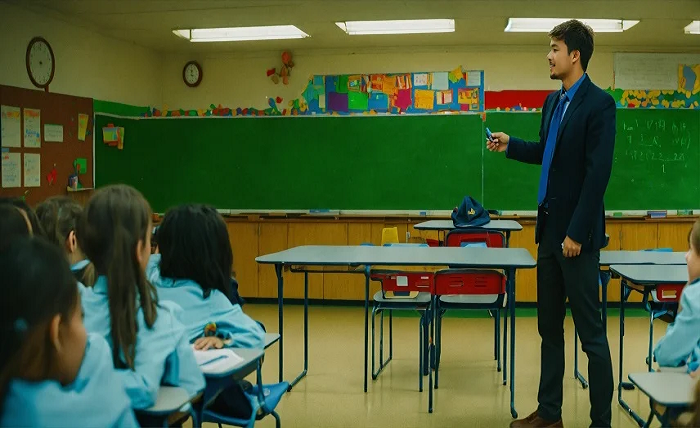Introduction
Perverted education is a lurking, sometimes invisible force in the sacred corridors of education, where minds are shaped and destinies are shaped. This murky underbelly of academia includes a plethora of problems that prevent rather than promote real learning, such as institutionalized biases and skewed courses. Come along with us as we explore these disturbing realities and shine a light on the hidden facets of education.
The Illusion of Progress
Even with all of the global improvements in schooling, there is a widespread delusion of progress. Genuine learning is frequently overshadowed by standardized tests and measurements, which reduce Perverted Education to a checklist of accomplishments rather than a comprehensive voyage of discovery.
Distorted Curricula: A Recipe for Ignorance
Curricula that are misrepresented are among the most pernicious examples of warped education. Books on history that have been altered to further political objectives, scientific textbooks that leave out important theories, and literary classes that ignore a variety of viewpoints all lead to a distorted worldview that promotes ignorance rather than enlightenment.
The Myth of Meritocracy
Theoretically, education is the great equalizer, providing chances for everyone, irrespective of background or situation. In actuality, though, the idea of meritocracy frequently conceals deeply ingrained systemic injustices. To maintain cycles of privilege and disadvantage, socioeconomic position, race, and gender continue to be important factors in deciding access to high-quality education.
Institutionalized Biases
Beneath the surface of objectivity, educational establishments conceal pervasive prejudices that influence the experiences and achievements of their pupils. These ingrained prejudices sustain systemic inequalities through hiring biases that favor specific demographics and disciplinary actions that disproportionately target marginalized groups.
Silencing Dissent: The Tyranny of Conformity
Intellectual curiosity and critical thinking are vital elements of a well-rounded educational experience. But in many educational environments, conformity is rewarded and dissenting opinions are suppressed. In addition to impeding real learning, this suppression of independent thought also promotes intellectual homogeneity and a culture of complacency.
The Commercialization of Knowledge
In recent years, education—once regarded as a noble endeavor—has become more and more commercialized. Due to profit-driven incentives, universities have become corporate organizations that are more focused on enrolment figures than on intellectual advancement, giving priority to marketable skills above comprehensive education.
Technological Disruption: A Double-Edged Sword
Although technology has the potential to completely transform education, integrating it into the classroom has presented a unique set of difficulties. The quick speed of technological progress has surpassed the ethical and pedagogical considerations required for its proper deployment, leading to issues like digital divides and privacy concerns.
The Cult of Standardization
In education, standardization has come to be associated with conformity, despite being promoted as a way to guarantee responsibility and consistency. Individual requirements and a variety of learning styles are not taken into account by formulaic methods of teaching and learning, which makes students passive consumers of knowledge rather than engaged contributors to their education.
Conclusion
Change begins in the mazelike depths of corrupted education, where truths are still hidden and shadows cast a long shadow. We can create a more promising future based on equity, empathy, and real learning by addressing the systematic injustices and ingrained prejudices that afflict our educational systems.
FAQ
What are some practical steps individuals can take to combat perverted education?
Have an important conversation with legislators and educators.
Encourage programs that advance inclusivity and diversity in Perverted Education settings.
Encourage curriculum changes that emphasize critical thinking abilities and holistic learning.
How can we address the issue of biased curricula in schools?
Promote the inclusion of a range of viewpoints in the creation of curricula.
Give teachers the tools and training they need to identify and deal with prejudice in instructional materials.
Give pupils the tools they need to analyze material critically and look for opposing views.
What role does parental involvement play in combating perverted education?
Parents have the power to speak up for their kids’ educational needs and hold schools responsible for offering fair chances.
Parents can contribute to the creation of a more responsive and inclusive learning environment by actively participating in school communities and maintaining open lines of contact with Perverted Education.

